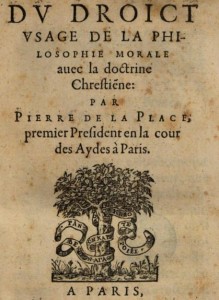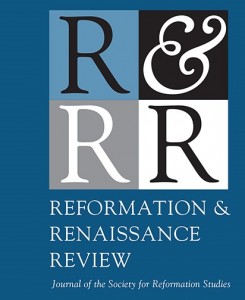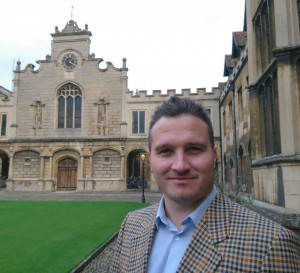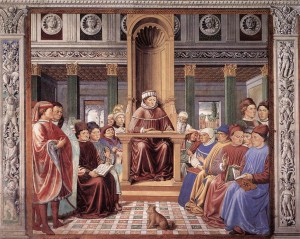In a review of Reformed Virtue After Barth: Developing Moral Virtue Ethics in the Reformed Tradition by Kirk J. Nolan, I criticize Nolan’s choice to examine John Calvin, the Westminster Confession, and Jonathan Edwards as antecedents to his real interest in discussing the ethics of Karl Barth.
In a study devoted to Reformed virtue ethics, I wondered “why it is worthwhile to spend so much time on Calvin when there were others—his contemporaries and succeeding generations—who did take up the question of virtue more extensively and systematically.” While I still believe this latter claim is true, recent work by my colleague David Sytsma has convinced me that there is much more material in Calvin’s work that is amenable to and indeed best understood within a virtue-ethical framework than I had previously thought (or, for that matter, than Nolan demonstrated in his study).
In “John Calvin and Virtue Ethics: Augustinian and Aristotelian Themes,” available via open access from the Journal of Religious Ethics, Sytsma observes:
As a theologian, Calvin himself did not write a treatise on ethics such as Melanchthon, Vermigli, and others did. But his theology integrates traditional concepts of virtue and he assumes the usefulness of philosophical ethics for civil society. There is no support in Calvin’s writings to support the supposed “repudiation of teleological virtue ethics” by the magisterial reformers for which Gregory argues (2012, 265). Instead, Calvin’s theological works provide ample justification for the subsequent development of Reformed virtue ethics, whether in the form of ethical treatises on the virtues or commentaries on the Decalogue, which correlate the commandments with virtues.
So even if we perhaps shouldn’t start with Calvin or look solely to his work in our efforts to understand the relationship between the Reformed tradition and virtue ethics, Calvin certainly should be part of the conversation.
Sytsma’s article is wide-ranging and worthy of close study. Hopefully its appearance in the Journal of Religious Ethics will help to temper some of the mainstream caricatures and misunderstandings of Calvin in particular and the Reformed tradition more generally.
Sytsma’s piece joins a growing body of important revisionist literature that corrects older and even some contemporary scholarship about the relationship of the Reformed tradition to the broader Augustinian and Thomistic traditions. This literature is such that the researcher today can be said to be left without excuse for repeating and rehearsing erroneous tropes about the scope and substance of discontinuity between someone like Calvin or Vermigli or Zanchi and the patristics and medieval scholastics, to say nothing of their Roman Catholic and Lutheran contemporaries.
For some examples of this kind of work with relevance for the development of Reformed virtue ethics after (and in addition to) Calvin, I recommend:
- Manfred Svensson, “Aristotelian Practical Philosophy from Melanchthon to Eisenhart: Protestant Commentaries on the Nicomachean Ethics 1529–1682,” Reformation & Renaissance Review 21, no. 3 (2019): 218-238.
- Kirk M. Summers, Morality After Calvin: Theodore Beza’s Christian Censor and Reformed Ethics (New York: Oxford University Press, 2016).
- Sebastian Rehnman, “Virtue and Grace,” Studies in Christian Ethics 25, no. 4 (2012): 472-493.





